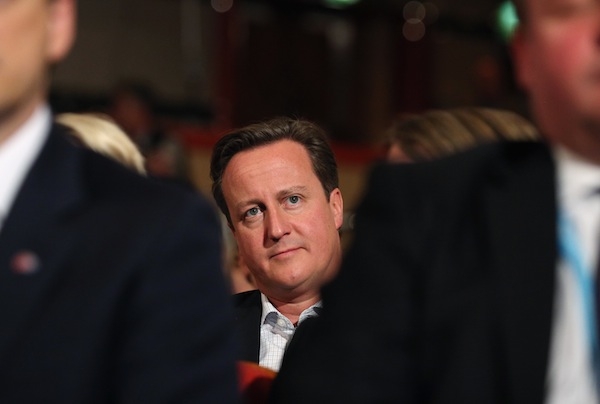It’s David Cameron’s birthday today, but when James Naughtie suggested on the Today programme that Boris Johnson be sent to a remote country as ambassador, the Prime Minister sounded as though Christmas had come early, too. You could almost hear Cameron’s mind whirring as he considered which country might deserve the Mayor of London.
As well as answering questions on the man who last night continued his pitch to become the next Tory leader, Cameron was asked where he was taking his party currently. The policies announced this conference are being seen as a sign of the Conservatives moving to the right, but Cameron described it like this:
‘The Conservative party is really actually doing what all of the country wants to see, which is to unlock the talent of everyone to make sure we’re winning this global race. Now, that’s not left wing or right wing, that is just sensible common ground, common sense, Conservative practical thinking that is going to help our country deliver in the future.’
So the Tory party doesn’t occupy the centre ground, it’s the party of the common ground. And David Cameron’s ‘common sense, Conservative practical thinking’ might involve a referendum on Britain’s membership of the European Union at some point, the Prime Minister hinted. He used the same language that he’s been using for months to talk about the idea of a referendum, saying he needed ‘to get that fresh settlement, then seek fresh consent for that settlement’. Cameron twice described a referendum as ‘the cleanest, neatest, simplest and most sensible way of doing that’.
This cautious, carefully-worded language is irking his backbenchers, though. They understand that the Prime Minister doesn’t want to reveal his hand before negotiations with EU leaders have started, but they are also impatient that there is not a great deal of time in which to negotiate this fresh settlement. Leading eurosceptic MP Bernard Jenkin has an article in Crossbow magazine in which he warns of the dangers of leaving it too late to articulate a position. He writes:
‘Third, if this Parliament does run until 2015 with no change in government policy, the new treaty will be done and dusted by the time we are unveiling our 2015 manifesto. That will be too late. The very idea that any Prime Minister could waive through the most fundamental change in the very nature of the EU – the political equivalent of economic and monetary union – and then, long after the UK’s consent, tacit or otherwise, has been taken for granted, that he could reverse his policy and demand renegotiation is not credible.’







Comments